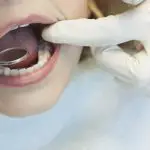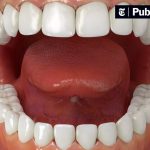Teeth Bonding 101: How Long Can You Expect Your Bonded Teeth to Last?

Teeth bonding is a cosmetic dental procedure that involves applying a tooth-colored resin material to improve the appearance of the teeth. This technique can be used to fix various dental problems, such as chipped, cracked, or discolored teeth, as well as to close gaps between teeth. The bonding material is applied to the teeth and shaped to match the natural contours of the teeth. Then, it is cured with a special light and polished to give a natural-looking finish. Teeth bonding is a popular and affordable cosmetic dental treatment that can significantly improve the appearance of your smile. One of the most common questions people have about teeth bonding is how long it can last. The longevity of bonded teeth depends on various factors, such as the quality of the bonding material used, the patient’s oral hygiene habits, and the amount of wear and tear the teeth are subjected to. Generally, bonded teeth can last anywhere from three to ten years, but with proper care, they can last even longer. In this article, we will explore the factors that affect the lifespan of bonded teeth and give you tips on how to extend the life of your bonded teeth.
Teeth bonding, also known as dental bonding, is a cosmetic dental procedure that involves the application of a tooth-colored resin material to the surface of a tooth to improve its appearance. The bonding material is shaped and polished to match the surrounding teeth, resulting in a natural-looking smile. The primary benefits of teeth bonding include its ability to repair chipped or cracked teeth, fill gaps between teeth, and cover up discoloration or stains. Additionally, teeth bonding is a relatively quick and painless procedure that can often be completed in a single visit to the dentist. While the longevity of bonded teeth can vary depending on several factors, including proper oral hygiene and regular dental check-ups, it is generally considered a cost-effective and durable solution for a variety of cosmetic dental concerns.
The article \Teeth Bonding 101: How Long Can You Expect Your Bonded Teeth to Last\ provides a comprehensive overview of teeth bonding, a cosmetic dental procedure that involves applying a tooth-colored resin to a damaged or discolored tooth. The article discusses the benefits of teeth bonding, such as its ability to improve the appearance of teeth, its relatively low cost, and its non-invasive nature. Additionally, the article explores the lifespan of bonded teeth, which can vary depending on several factors, such as the material used, the location of the tooth, and the individual’s oral hygiene habits. The article concludes by providing tips for prolonging the lifespan of bonded teeth, such as avoiding hard foods, practicing good oral hygiene, and scheduling regular dental check-ups.
What is Teeth Bonding?

Teeth bonding is a cosmetic dental procedure that involves applying a tooth-colored composite material to the surface of a tooth to improve its appearance. The composite resin used in teeth bonding is a blend of plastic and glass that is carefully selected to match the natural color of your teeth. During the procedure, the dentist will roughen the surface of the tooth and apply a conditioning liquid to help the bonding material adhere to the tooth. The composite resin is then applied in layers and hardened with a special light. The dentist will shape and polish the bonded tooth until it looks natural and blends in with the rest of your teeth. Teeth bonding can be used to fix several dental issues, such as chipped, stained, or misshapen teeth, and it is a minimally invasive and affordable alternative to more extensive dental procedures. The longevity of teeth bonding depends on several factors, such as the quality of the bonding material, the skill of the dentist, and the patient’s oral hygiene habits. Generally, teeth bonding can last between 3 to 10 years, but with proper care, it can last even longer. Patients should avoid biting down on hard objects, such as ice or pens, which can chip or break the bonding material. They should also avoid consuming staining foods and drinks, such as coffee or red wine, which can discolor the bonding material. Good oral hygiene habits, such as brushing twice a day, flossing, and regular dental cleanings, can also help prolong the life of teeth bonding.
Teeth bonding is a cosmetic dental procedure that involves applying a tooth-colored composite resin material to the surface of a tooth to improve its appearance. The resin is molded and shaped to fill in gaps, repair chips or cracks, and cover stains or discolorations. The bonding material is then hardened with a special light and polished to match the surrounding teeth. Teeth bonding is a relatively simple and painless procedure that can be completed in a single visit to the dentist. It can last anywhere from 3 to 10 years depending on the quality of the material used and how well the patient takes care of their teeth. With proper maintenance and regular check-ups, bonded teeth can last even longer.
Teeth bonding is a cosmetic dental procedure that involves the application of a tooth-colored resin material to the surface of a damaged or discolored tooth. The material is then shaped and polished to match the surrounding teeth, creating a natural and seamless appearance. The procedure is typically used to repair chipped, cracked or broken teeth, close gaps between teeth, and improve the appearance of discolored teeth. The bonding material is strong and durable, but its lifespan can vary depending on the individual’s oral hygiene habits and the amount of wear and tear it undergoes. With proper care and maintenance, however, bonded teeth can last for several years, making it a popular and affordable cosmetic option for those looking to improve the appearance of their smile.
Teeth bonding is a cosmetic dental procedure that involves applying a tooth-colored resin material to the surface of a tooth to improve its appearance. One of the most common uses for teeth bonding is to fix chipped or cracked teeth, as well as to fill in gaps between teeth. Additionally, bonding can be used to cover up stains or discoloration on teeth, and to reshape teeth for a more aesthetically pleasing smile. The procedure is relatively quick and painless, and the results can last for several years with proper care and maintenance. Overall, teeth bonding is a versatile and effective solution for many cosmetic dental issues, and can help patients achieve a brighter, more confident smile.
How Long Does Teeth Bonding Last?
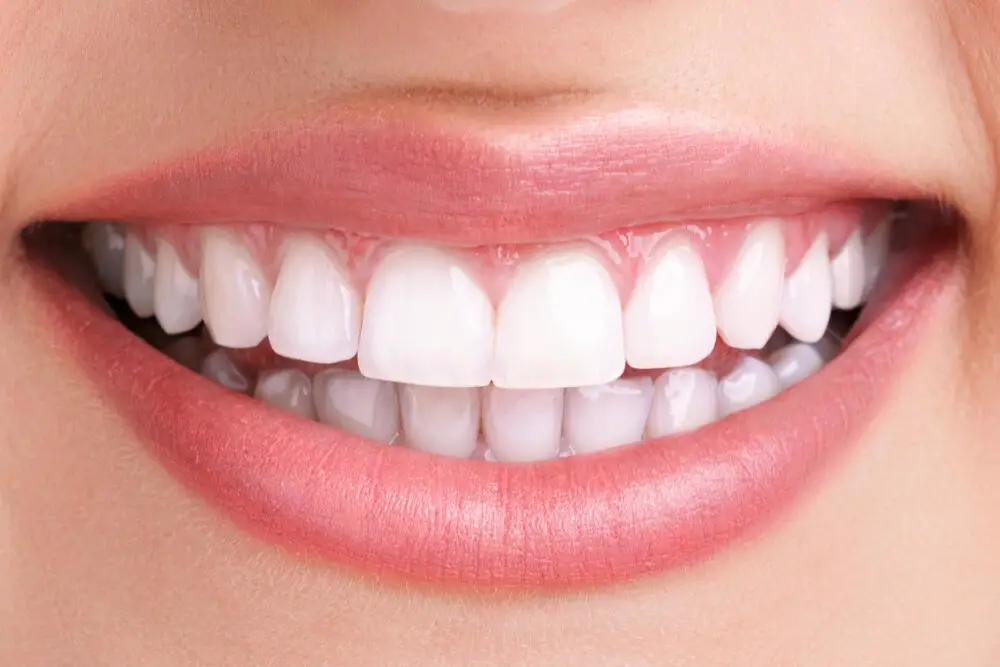
Teeth bonding is a minimally invasive cosmetic dental procedure that can help improve the appearance of your teeth. It involves applying a tooth-colored resin material to the surface of the teeth and then using a special light to harden the material. The bonding material is strong and durable, but it is not indestructible. The lifespan of teeth bonding varies depending on several factors, including the location of the bonded teeth, your oral hygiene habits, and your lifestyle choices. In general, teeth bonding can last anywhere from 3 to 10 years or even longer with proper care. However, it’s important to note that bonded teeth are not as strong as natural teeth and are more prone to chipping or breaking. Therefore, it’s essential to avoid biting down on hard objects, such as pens or ice, and to avoid using your teeth as tools. Additionally, maintaining good oral hygiene habits, such as brushing twice a day and flossing daily, can help prolong the life of your bonded teeth. If you notice any changes in the appearance or feel of your bonded teeth, it’s important to see your dentist as soon as possible to address any issues before they become more significant.
Several factors can affect the lifespan of teeth bonding, including the type of bonding material used, the skill of the dentist performing the procedure, the patient’s oral hygiene practices, and their dietary habits. Composite bonding material can last between five and ten years with proper care, but it can wear down or chip if the patient bites down on hard objects or grinds their teeth. Patients who do not practice good oral hygiene, such as brushing and flossing regularly, may experience decay or damage to the bonding material. Additionally, consuming foods and beverages that are high in sugar or acidic can weaken the bonding material over time. It is essential to follow the dentist’s instructions for care after getting teeth bonding to ensure its longevity.
Teeth bonding is a cosmetic dental procedure that involves the application of a tooth-colored resin material to improve the appearance of a chipped, discolored, or misaligned tooth. The longevity of teeth bonding can vary depending on several factors such as oral hygiene, dietary habits, and the type of bonding material used. On average, teeth bonding can last between 3-10 years before needing to be repaired or replaced. However, with proper care and maintenance, bonding can last even longer. Regular dental check-ups and cleanings can help prolong the life of your bonding, as well as avoiding habits such as biting your nails or chewing on hard objects. If you are considering teeth bonding, it is important to discuss the expected lifespan with your dentist and develop a plan for maintaining your new smile.
Teeth bonding is a cosmetic dental procedure that involves the application of a composite resin material to the surface of the teeth. While bonding can provide a quick and effective solution for a variety of dental problems, it is not a permanent solution. Fortunately, there are several ways to extend the lifespan of teeth bonding. Firstly, maintaining good oral hygiene is essential, including brushing and flossing regularly and avoiding foods and drinks that can stain the teeth. Secondly, avoiding biting or chewing on hard objects, such as ice or pencils, can prevent damage to the bonding material. Lastly, regular dental check-ups and cleanings can help identify any issues with the bonding and ensure it is properly maintained, potentially extending its lifespan.
Symptoms of Failing Teeth Bonding
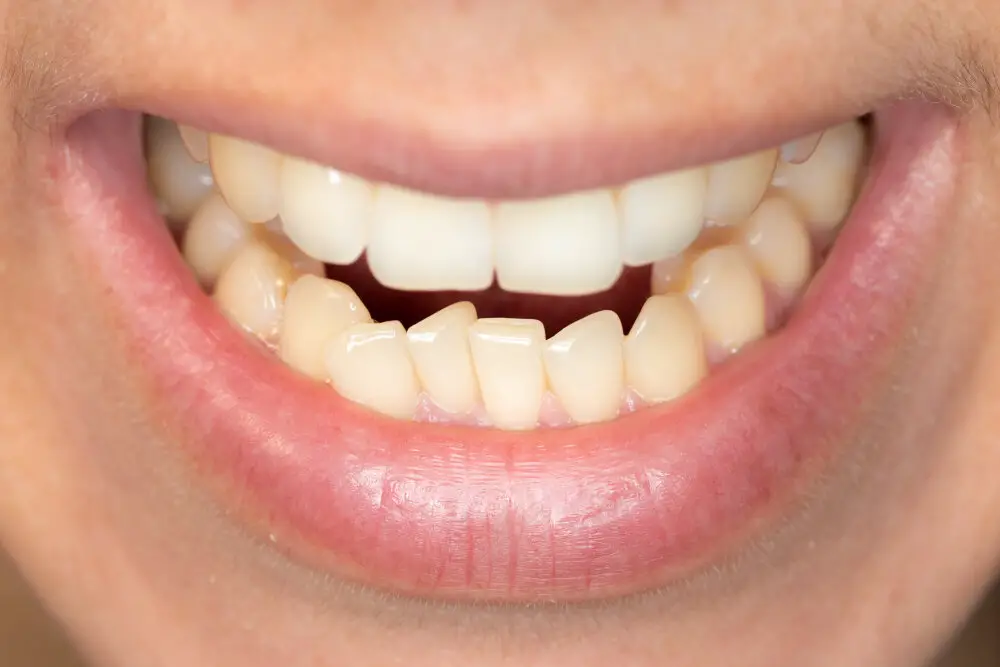
Teeth bonding is a cosmetic dental procedure that can improve the appearance of teeth by filling in gaps, repairing chips, and covering stains. While it is a relatively simple and affordable procedure, it is not permanent, and the bonded material can fail over time. There are several symptoms of failing teeth bonding that patients should be aware of, including discoloration, chipping, and sensitivity. Discoloration is a common symptom of failing teeth bonding, as the bonded material can become stained or yellowed over time. This is especially common in patients who consume staining foods or beverages, such as coffee, tea, or red wine. Chipping is another common symptom of failing teeth bonding, as the bonded material can become weakened or damaged over time. This is especially common in patients who grind their teeth or bite down on hard objects, such as pens or fingernails. Finally, sensitivity is a potential symptom of failing teeth bonding, as the bonded material can become loose or separated from the tooth, exposing the sensitive inner layers. Patients who experience any of these symptoms should consult with their dentist as soon as possible to determine the best course of action. In conclusion, teeth bonding is a popular cosmetic dental procedure that can improve the appearance of teeth, but it is not permanent and can fail over time. Patients should be aware of the symptoms of failing teeth bonding, including discoloration, chipping, and sensitivity, and should consult with their dentist if they experience any of these symptoms. With proper care and maintenance, teeth bonding can last for several years, but eventually, it will need to be repaired or replaced to maintain the desired results.
Teeth bonding is a popular cosmetic dental procedure that can last for several years with proper care. However, over time, the bonding material may begin to show signs of wear and tear, indicating that it is failing. Some common signs of failing teeth bonding include discoloration, chipping, cracking, and sensitivity to hot or cold temperatures. Discoloration can occur due to staining from food and drinks or simply due to the natural aging of the bonding material. Chipping and cracking can occur from biting or chewing hard objects, and sensitivity to hot or cold temperatures can indicate that the bonding material is no longer effectively protecting the underlying tooth. If you notice any of these signs, it is important to schedule an appointment with your dentist to have the bonding material evaluated and potentially repaired or replaced.
If you notice any issues with your bonded teeth, such as discoloration, chipping or gaps, it is essential to address them promptly. The first step is to schedule an appointment with your dentist to assess the level of damage and determine the appropriate course of action. Depending on the extent of the damage, the bonding may need to be repaired or replaced. Your dentist may also recommend alternative treatments, such as veneers or crowns, if the bonding is no longer a viable option. It is crucial to maintain good oral hygiene and avoid habits such as biting your nails or chewing on hard objects to prevent further damage to your bonded teeth. With proper care and maintenance, your bonded teeth can last for several years, providing you with a beautiful and confident smile.
What to Expect During a Teeth Bonding Procedure
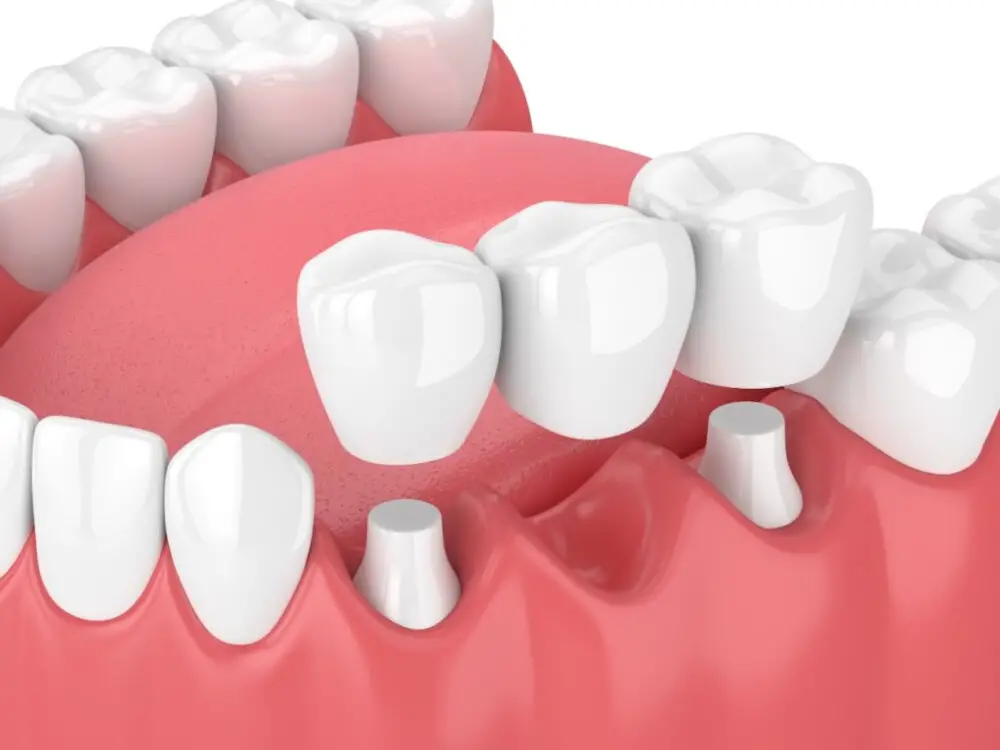
When it comes to teeth bonding, it can be a relatively quick and painless procedure that can improve the appearance of your smile. During the procedure, your dentist will prepare your teeth by roughening the surface and applying a conditioning liquid. Then, a tooth-colored resin is applied to the surface of your tooth and sculpted into the desired shape. A special light is then used to harden the resin, and any final adjustments are made before polishing the bonding material to match the natural shine of your teeth. The entire process typically takes about 30-60 minutes per tooth, depending on the extent of the bonding required. After the procedure, you may experience some sensitivity to hot and cold temperatures for a few days, but this should subside quickly. It’s important to maintain good oral hygiene habits, including regular brushing and flossing, to ensure the longevity of your bonding. While bonding is not as strong as other dental restorations such as veneers or crowns, with proper care and maintenance, it can last up to 10 years or more. Overall, teeth bonding is a simple and effective way to enhance the appearance of your smile and boost your confidence.
Teeth bonding is a cosmetic dental procedure that involves the application of a tooth-colored composite resin material to the surface of the teeth. The bonding material is then sculpted and shaped to match the natural contours of the teeth to improve their appearance. The procedure is typically used to repair chipped, cracked or discolored teeth, close gaps between teeth, or change the shape and size of teeth. The bonding material is applied in layers and hardened with a special light. The entire procedure can be completed in a single visit and is virtually painless. The results of teeth bonding can last up to 10 years with proper oral hygiene and regular dental check-ups.
Teeth bonding is a cosmetic dental procedure that involves applying a tooth-colored resin material to the surface of the teeth to improve their appearance. The process typically involves several steps, including tooth preparation, bonding material selection, application of the bonding material, and shaping and polishing of the teeth. The first step involves preparing the teeth by cleaning and roughening their surface with an etching solution to ensure better adhesion of the bonding material. Next, the dentist selects the appropriate shade of bonding material that matches the color of the patient’s teeth. The bonding material is then applied to the teeth and shaped to achieve the desired result. Finally, the teeth are polished to create a smooth and natural-looking finish. With proper care and maintenance, bonded teeth can last for several years, making it a popular choice among patients who want to improve the appearance of their teeth.
Aftercare instructions play a crucial role in maintaining the longevity of bonded teeth. Patients who undergo teeth bonding should avoid hard, crunchy, or sticky foods for at least 24 hours after the procedure to allow the bonding agent to set properly. Additionally, they should avoid smoking and excessive alcohol consumption, as these habits can stain the bonding material. Regular dental check-ups are also necessary to ensure that the bonded teeth remain in good condition. Proper oral hygiene, including brushing twice daily and flossing, is also essential to prevent decay and gum disease. By following these aftercare instructions, patients can enjoy their bonded teeth for many years to come.
Teeth bonding is a popular cosmetic dental procedure that involves the application of a tooth-colored resin material to the surface of the teeth. It is commonly used to repair chipped, cracked, or discolored teeth, as well as to close gaps between teeth. While the longevity of bonded teeth may vary depending on a variety of factors such as diet, oral hygiene, and the bonding technique used, they can typically last between 3-10 years with proper care. It is important to avoid biting or chewing on hard objects or foods, and to maintain good oral hygiene practices such as brushing and flossing regularly. If you experience any issues with your bonded teeth, it is important to consult with your dentist to ensure proper care and maintenance.
In conclusion, teeth bonding is an effective and affordable cosmetic dental procedure that can enhance the appearance of your teeth. However, the durability of bonded teeth largely depends on how well you care for them. To ensure that your bonded teeth last for several years, it is important to maintain good oral hygiene practices, avoid biting or chewing on hard objects, and schedule regular dental check-ups. If you experience any issues with your bonded teeth, such as chipping or discoloration, it is important to consult your dentist immediately. With proper care and maintenance, bonded teeth can last anywhere from three to ten years, providing you with a beautiful and confident smile.
Conclusion

In conclusion, teeth bonding is a popular dental procedure that can improve the appearance and function of damaged or discolored teeth. The longevity of bonded teeth depends on several factors such as oral hygiene, diet, and lifestyle habits. While the bonding material is not as durable as natural teeth, with proper care, bonded teeth can last for several years. Regular dental check-ups and maintenance can help prolong the lifespan of bonded teeth. It is important to consult with a dental professional to determine if teeth bonding is the right option for your dental needs and goals. Overall, teeth bonding can be a great investment in your oral health and confidence.


